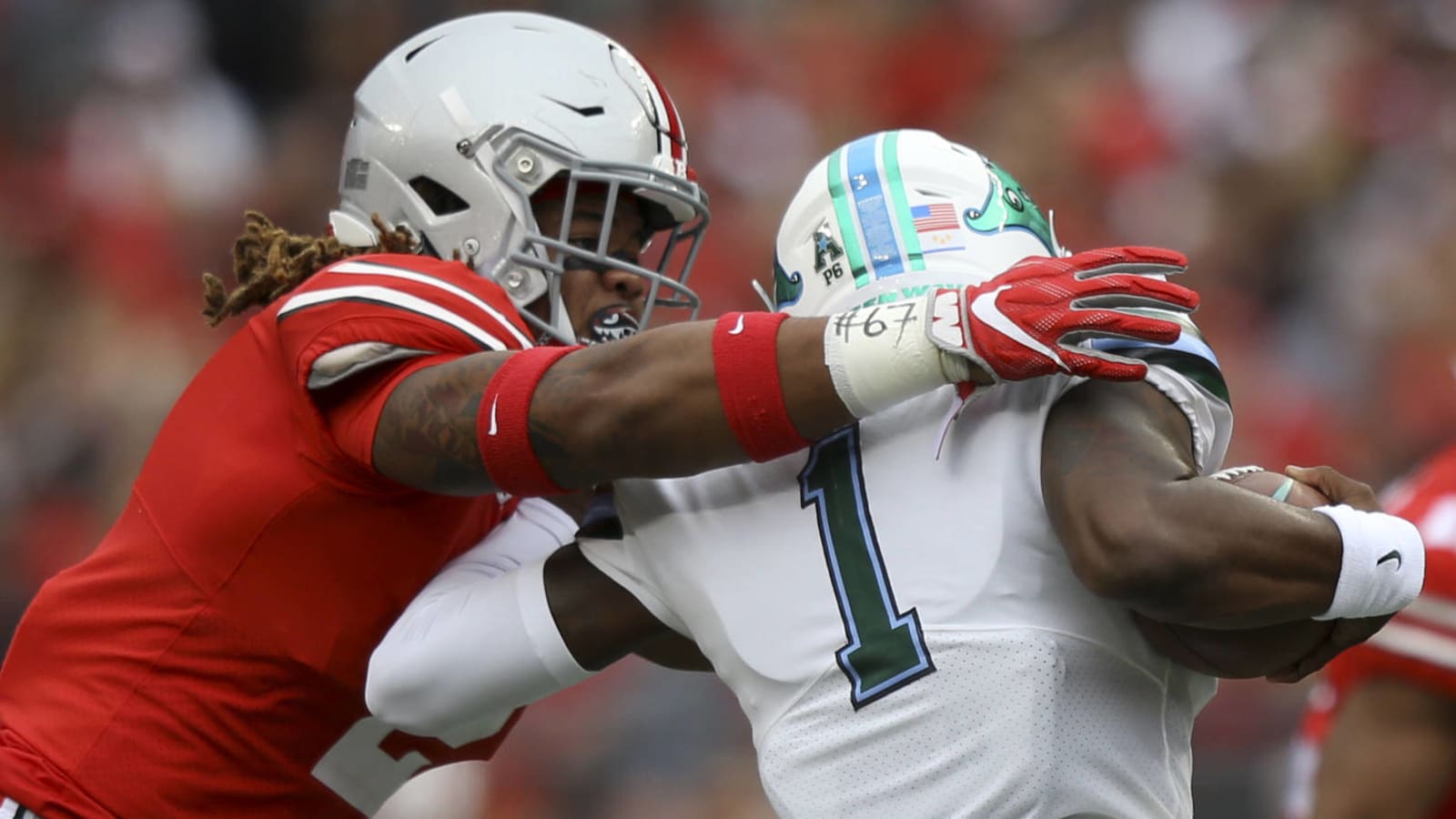
Why Ohio State's Chase Young deserves Heisman but won't win it
The Heisman Trophy is a deceptively complex award that hides behind a veneer of simplicity. The only criteria voters use is that it be awarded to the most outstanding college football player in the country. But this simple mandate leads to all sorts of groupthink and regionalism and media influence: How the hell are you supposed to objectively decide what “most outstanding” really means?
The answer, of course, is that you can’t.
The Heisman is not an objective award at all. Rather, it is based entirely on the individual perceptions of more than 900 voters from diverse backgrounds who harbor competing views about what they’re even supposed to be voting on. Is it a Most Valuable Player Award? Should it be based strictly on numbers or on position? And that is how we’ve reached yet another moment of pure logical contradiction:
A.) The Heisman Trophy is supposed to go to the most outstanding football player in the country.
B.) The most outstanding football player in the country is almost certainly Ohio State defensive end Chase Young.
C.) Chase Young will almost certainly not win the Heisman Trophy.
Oh, sure, there is clear momentum in Young’s direction following his volcanic performance in a nationally televised game against Wisconsin last Saturday. Young was essentially unblockable, and the fact that his performance was continually highlighted on a network broadcast elevated his status to the point where we have to at least ask the question: Could a purely defensive player ever win the Heisman Trophy? The answer to that question, even in an era when every major football game is readily televised and social media can alter public perception, is almost certainly a resounding no, and there are several reasons why. But the primary one is that the Heisman is an attention-based award driven by hype.
We live in an era when offense is the predominant force in the sport — and the primary subject of our attention. Teams run up numbers, teams throw the ball and teams score points. This is why the only defensive player to win the Heisman, Michigan’s Charles Woodson, also caught passes as a receiver on an undefeated Wolverine squad that regularly appeared on national television in 1997. This is also why, in the 21st century, the Heisman has transitioned from a default award for running backs to a default award for quarterbacks: They are now the highest-profile players on the field and the easiest to see for those 929 voters, many of whom probably don’t watch as much college football as you and I do.
It’s not hard to figure out, in other words, that Alabama's Tua Tagovailoa is good; it’s not difficult to determine that Joe Burrow is one of the primary reasons that LSU is undefeated. It’s not a stretch to comprehend how well Young’s own teammate, Ohio State quarterback Justin Fields, has played this season. It takes a little more patience and time to comprehend just how good Young is. In the Wisconsin game, it was obvious enough, but what happens down the stretch when Ohio State faces Penn State and Michigan, and those teams focus nearly all of their attention in pass protection and making sure that Young doesn’t add to his nation-leading total of 13.5 sacks?
“It will be hard for him to win the Heisman because he can’t have many, or any, routine games,” ESPN studio host Rece Davis told The Athletic’s Bruce Feldman. “QBs can do that and they still pile up quantifiable things on their résumé. Young can’t just grade out well. Or command double teams, extra blockers and have offenses tailor game plans to minimize his impact. Those are valuable things, but he needs sacks, TFLs and strip sacks.”
But let’s get real: Who among that pack of Heisman voters is going to take the time to pay attention to these things? As great as Young has been this season, he hadn’t registered more than two sacks in a game until the win over Wisconsin. It’s easier to throw a vote at Burrow, or Fields, or one of a handful of other offensive players whose impact on the game is far easier to see.
In the end, the Heisman is not really about choosing the most outstanding college football player in the country: It’s about capturing the attention of a handful of random observers. And that’s far easier to do when you’re playing quarterback than when you’re attempting to tackle one.
More must-reads:
- College football week 10: Picks and preview
- Heisman Trophy watch: Week 9
- The 'MLB ballpark names' quiz
Breaking News
Trending News
Customize Your Newsletter
 +
+
Get the latest news and rumors, customized to your favorite sports and teams. Emailed daily. Always free!








